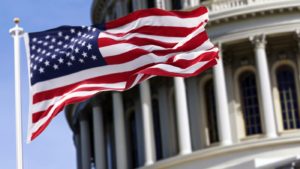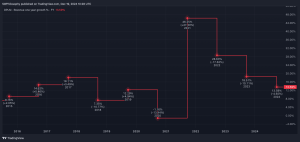Matt Benevento was surprised when his bank sent him an alert that he’d incurred four overdraft transactions in his account and gotten dinged more than $100 in overdraft fees.
“It seemed like they were charging me so much money for a one-time mistake,” he says. But Benevento, a search engine optimization strategist who was living in New York state at the time, had been with his bank for years and wondered if it might be lenient with him. He says he called the bank’s customer service line and asked if they could waive the fees.
It worked. “They allowed the refund because it was my first offense and because I’m generally a good customer,” Benevento says. His advice to anyone else who’s been charged an overdraft fee? Ask if the bank will waive some or all of it. “It never hurts to ask,” he says.
How to ask your bank for a refund
Some banks have published fee forgiveness policies and may automatically waive some overdraft fees based on certain conditions. But even if there’s no formal policy, it’s always worth asking if your bank will waive the fee, says Jesse Bradin, a financial advisor in Raleigh, North Carolina.
“You have to be your own best advocate,” Bradin says. Call the customer service line, explain that you have an overdraft charge and ask if the fee can be waived, he says. It can be as simple as that.
If your fees get refunded, you’ll still need to make a deposit into your account to cover the negative transaction.
Understanding overdrafts
Overdraft fees are charged when a customer is enrolled in overdraft protection, giving their bank or credit union permission to process a transaction even when there isn’t enough money in the bank account to cover it. The institution typically charges a fee for this service. Many large banks charge $36 or more per transaction — sometimes multiple times a day — which sends the account balance further into negative territory. The costs add up.
Overdraft protection for debit card purchases and ATM transactions is optional. Opting out means that your transaction will be declined if there’s not enough money in your account to cover it. This can be inconvenient, but it could also save you the expense of multiple overdraft charges.
Banks earn billions of dollars a year in overdraft fees. The largest banks collected more than $11 billion in overdraft fees in 2019, according to the Center for Responsible Lending. With overdraft fees, customers end up owing a lot of money to their bank at a time when they’re least likely to be able to afford it, Bradin says.
The consequences of overdrafts
The cost of overdraft charges goes beyond fees. The bank may close your account if it’s negative for too many days. When a bank closes your account due to unpaid fees, it will likely notify a consumer reporting agency, such as ChexSystems. And if you have a ChexSystems record, you’re “at risk of being pushed out of the banking system,” Bradin says.
Without access to a bank account, you may have to use fee-based check-cashing services to access your paycheck or reloadable debit cards that charge for cash deposits. Overall, it’s better to try to keep a bank account open, Bradin says.
Ways to avoid future overdraft fees
Though banks may waive overdraft fees on occasion, it’s generally best to avoid overdrafts to begin with. Here are steps you can take now to avoid overdraft charges in the future.
-
Link a backup account. Many financial institutions let you link your checking account to a backup account, such as a savings account or line of credit. If an overdraft occurs, the funds are automatically transferred from the linked account into the checking account to cover the overdraft. Some banks don’t charge at all for this service, but others do (typically around $12). If you link to a line of credit, you’ll likely have to pay interest on transferred funds, with an annual percentage rate that can be as high as 18% or more.
-
Sign up for balance alerts. Your bank may offer to send you a text or email alert if your balance crosses below a set amount. You can then determine if you can curb spending or transfer funds from another account before your account dips into negative territory.
-
Switch to a cheaper bank or credit union. Some institutions, particularly online banks, don’t charge overdraft fees at all (though you’ll need to make a deposit to bring your balance to a positive amount). And credit unions generally have lower overdraft fees compared with large banks. Other institutions have programs that may let you overdraw your account up to a certain amount without a fee, provided you meet eligibility requirements.
-
Opt out of overdraft protection. If you go this route, debit card transactions and ATM withdrawals that would dip your account into the negative will simply be declined. But you won’t escape every fee this way. Checks that bounce can incur a non-sufficient funds fee, which can often be as expensive as the bank’s overdraft fees. In addition, the business or individual you wrote the check to might charge a fee if a check is returned unpaid. You’ll want to pay careful attention to your balance, whether or not you opt in to overdraft protection.
Overdrafts may be a big moneymaker for banks, but they don’t have to be a money-loser for you. If you’re charged an overdraft, ask for a refund of those fees. It can be a quick way to get your account balance back on track so you can focus on avoiding or minimizing those charges in the future.
This post was originally published on Nerd Wallet







